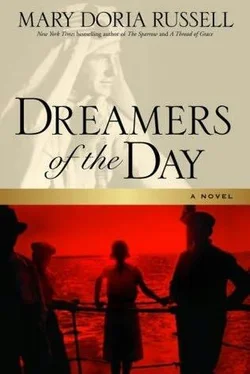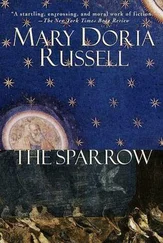On the back of mine, I found a handwritten note: “My past is like a tin can tied to my tail.” My reply was itself a few words on a postcard, honoring his own brevity. I quoted Ovid: “ Facta fugis; facienda petis. Achievement you flee, pursuing new accomplishment.” I don’t know if he received it, but I like to think he did and that he smiled.
There were those who insisted that Lawrence must have been working as a secret agent in his later years, fomenting trouble in India or the Middle East, or even spying in Germany. They couldn’t accept at face value his decision to walk away from public life, couldn’t understand that when he finished with something, he simply never looked back.
He was freakishly competent, you see, a sort of serial genius who thrived on change and challenge. Study crusader castles; run an archaeological dig; make maps. Establish liaisons with Arab tribal leaders; develop tactics for asymmetrical warfare. Represent Sherifian interests with the Big Four at Versailles; find a compromise that would allow for Arab aspirations while serving his empire’s strategic needs. Write a war book; translate The Odyssey from the Greek with a literate warrior’s insight. Master airplane mechanics; test and modify powerboat engines … No matter what he took up, he worked until he achieved a result that he himself could respect. Then he went on to something else.
Anyway, the publicity eventually died down, and Lawrence was able to transfer back to the R.A.F., an organization he truly loved. He resumed some of his correspondence when it seemed safe to do so, and I was delighted to hear from him again. We rarely wrote of anything historic or political. For the most part, we discussed writers and books, or music and record players. Lawrence had an impressive collection of modern music and firm opinions about the best machinery for playing it. He particularly loved Mahler’s Ninth Symphony, which, he wrote, “holds me in thrall. Its spell does not break until the recording has ended, and I hear the rhythm of the needle.” On his recommendation, I bought a recording he admired and learned to love it as well.
Apart from the letters, he did me the extraordinary honor of sending a copy of Seven Pillars of Wisdom from the initial hand-printed edition. He inscribed it, “In memory of our camel ride—this is the book I told you about.” Of its contents, he said nothing, noting only that he wished me to see the craftsmanship he’d marshaled in its production. The book was beautifully bound, with a wealth of illustrations, just as he’d envisioned. There were pastel portraits and amusing cartoons by Eric Kennington; oils by Augustus John; Rothenstein’s chalks; a photograph of Meštrović’s bronze of the beautiful, sad-eyed Feisal; pencil and pen-and-wash portraits by Douglass, and Dobson, and Spencer.
Later Lawrence sent me a proof of his popular abridgment Revolt in the Desert, asking my opinion. Reflexively, I sent a schoolteacher’s quibbling list of typos and misspellings, alerting him to occasions when the ship of metaphor had run aground. I also suggested that he reconsider his enthusiasm for commas, colons, and ellipses, a weakness I admittedly shared. I regretted mailing it the moment the envelope left my hand, but he seemed pleased to receive my advice and thanked me for saving him from public embarrassment.
That reply was an opening for me to express the one real reservation I had about the shortened story. He’d left out the emotional climax of Seven Pillars: the incident in Deraa. Some people say it never happened as he described it, but something awful did; whatever it was, it scarred him deeply. “I can understand why you would prefer to leave ‘the difficult section’ out of the abridgment,” I wrote, “but that seems to me like skipping the third movement of Mahler’s Ninth. Until you’ve struggled to understand the third movement—with its pileup of polyphony, the crazy complexity that nearly tips into madness—well, I don’t think you can truly appreciate the beauty and consolation of the fourth movement.” I believe he took my point, though nothing came of my suggestion. The abridgment was published with improved punctuation but without reference to Deraa.
And then one morning in 1935, I read the headline: LAWRENCE OF ARABIA, DEAD AT 46. He had been out on his motorcycle, speeding along a country lane, when he swerved to avoid two boys on bicycles. It was reported that Colonel Lawrence had suffered a compound fracture of the skull, a hemorrhage of the brain, a broken leg, and many internal injuries.
From the first, his doctors were pessimistic, but even in middle age Lawrence was a man of great physical stamina—like a bull, as Karl once described him. He survived the crash for nearly a week, raising hopes for his recovery, but it was not to be.
You can imagine the shock. You, too, have experienced the sudden and unexpected passing of someone vital and attractive and world famous. Whatever distress their private lives hold, the public lives of such charismatic figures seem charmed, almost magical. Their deaths are all but impossible to comprehend. Many people refuse to believe that something as ordinary as a motoring accident could claim such a luminary.
For years afterward, sightings of Lawrence were reported and conspiracies were rumored. His death was a hoax, some said, providing cover so that he could sneak into northern India and foment rebellion among the Muslims there. I permitted myself to believe these notions for a while, but they were all nonsense.
After his death, his brother Arnold published a book of remembrances by those who’d known Lawrence best. I think I told you that earlier, didn’t I? Anyway, Mr. David Garnett was not alone among Lawrence’s friends in finding “something clerical and celibate” about him. Despite, or perhaps because of, the fervent evangelism of his mother, Lawrence was not religious, but the monastic life in the Royal Air Force had suited him, and he was genuinely happy there. As an elderly Miss el-Akle recalled years later, Lawrence “used all his gifts, great or small, in service to others.” Her observation might seem at odds with what some took to be a shameless seeking after fame, but Winston Churchill agreed with her assessment. “Home, money, comfort, fame, and power meant little or nothing to Lawrence,” he wrote.
In my opinion, Lawrence’s celebrity was as much a tool as his clothing. He used whatever he had to advance causes he believed in, and made himself insignificant otherwise. He was actually quite consistent about that. To work among comrades, doing something useful with his mind and his hands—that was God’s work to him.
When I read about the accident that killed him, I thought, It was a good life, well lived. I wept, on and off, for days.
You might be surprised that Winston Churchill was the last person who came to mind as I cast about for someone who could assist Karl’s family. When you know that Churchill led Britain through the dark days of the Second World War, it’s hard to keep in mind that he spent the years between the two global conflicts without much influence. His party was out of power, and he was relatively unimportant within it. Even among Tories, it must be said, Winston was widely disliked.
In France and Britain and America, we were simply sick of war. Our dead soldiers needed no freshly slaughtered company. Governments around the world were strapped for cash and beset by troubles, left and right. The Depression had impoverished so many; most people were struggling day by day to keep body and soul together. As odious as Herr Hitler was, the very thought of another war with Germany was unbearable. And frankly, so was Winston’s tedious insistence that such a war was inevitable and that it would be better undertaken sooner than later.
Читать дальше












